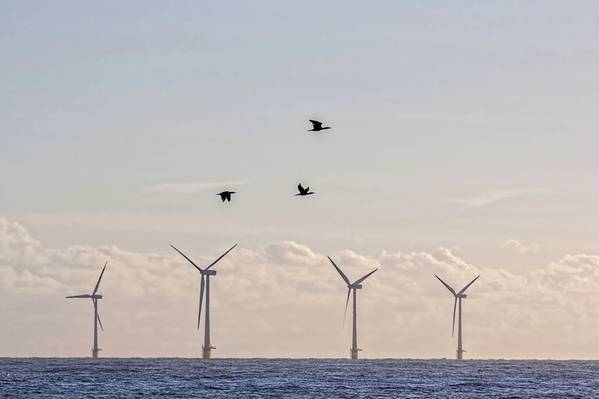
The National Audubon Society has released a report that shares clear strategies and policy recommendations for balancing clean energy demand with conservation in order to combat climate change while protecting birds and their habitats.
The report, titled Birds and Offshore Wind: Developing the Offshore Wind that Birds Need, makes the case for responsibly sited offshore wind development that addresses potential risks to birds based on the best available science.
Audubon calls for advancing offshore wind energy using a four-step process - remove critically important bird habitat from consideration, implement known minimization measures and research new ones, offset unavoidable impacts when necessary, and conduct monitoring before and after construction.
Additionally, the report provides an overview of the offshore wind permitting process, calls for policies that prioritize wildlife protection and community benefits, highlights examples of Audubon’s work ensuring that offshore wind development avoids, minimizes, and offsets impacts on birds, and emphasizes the importance of early and ongoing engagement with local communities and Tribes throughout development.
“To help ensure a future where birds and people can thrive, we must accelerate offshore wind development while effectively addressing any unintended risks to birds and their habitats. With clear strategies and policy recommendations, this report shows how wildlife conservation and offshore wind energy development can go hand in hand,” said Garry George, Senior Director for Climate Strategy at the National Audubon Society.
“Offshore wind is an essential clean energy technology, but it must be developed in a responsible manner that protects wildlife, fish, and our precious ocean and coastal ecosystems. This report identifies numerous actions that Congress and Federal agencies can take to achieve this goal,” added Congressman Paul Tonko (NY-20), Co-Chair of the House Sustainable Energy and Environment Coalition (SEEC).
“Ørsted applauds Audubon for recognizing the importance of a rapid and responsible buildout of offshore wind in the United States. As this new American industry continues to expand domestic energy production, we’re proud that we already embrace many of the research, monitoring, and mitigation best practices called for in the report.
"We look forward to continuing to work with federal and state regulators, environmental organizations, fishing industry partners, coastal communities, and Tribes to expand local clean energy production while investing in jobs and economic development,” noted Ariana Spawn, Regulatory Affairs Lead for Environment at Ørsted.